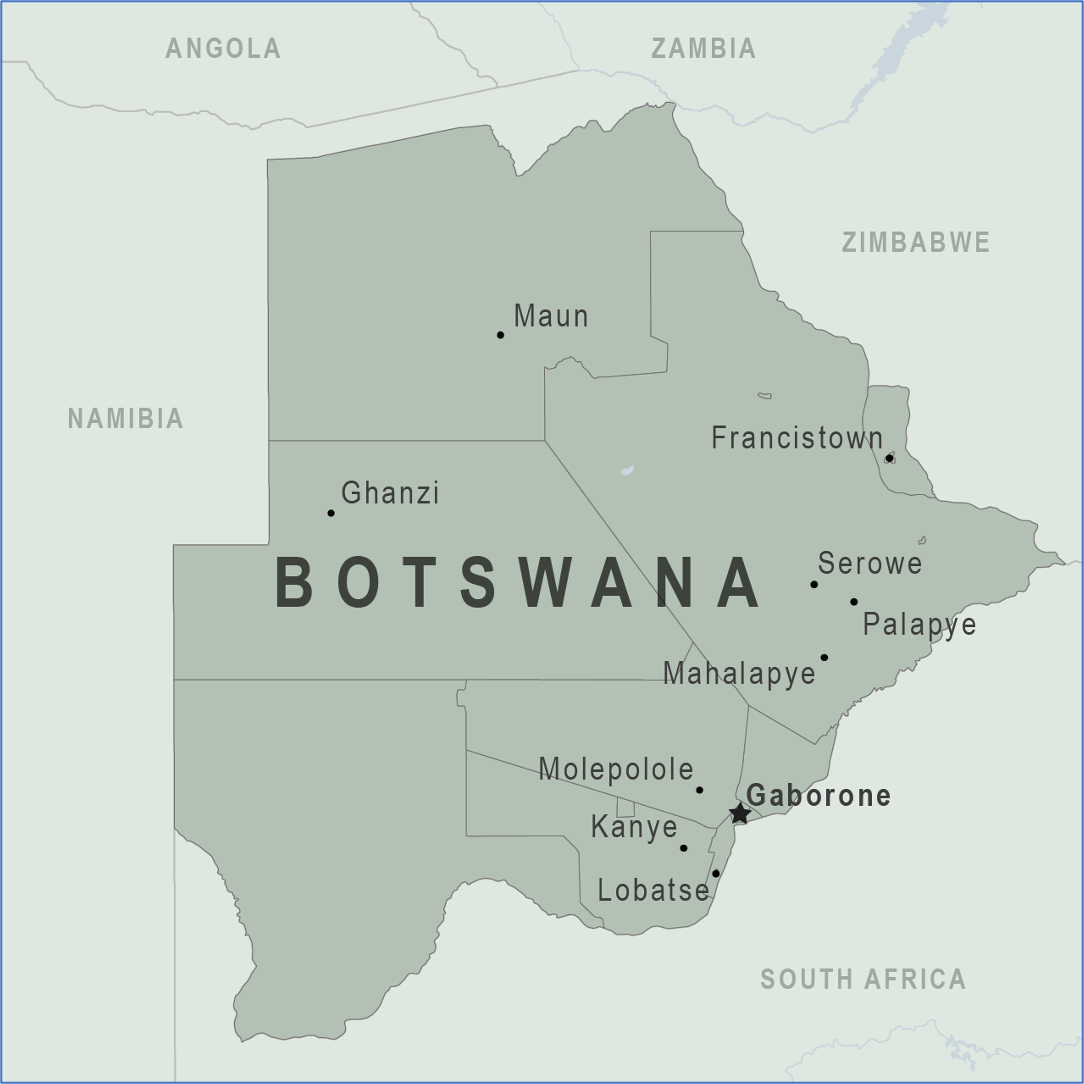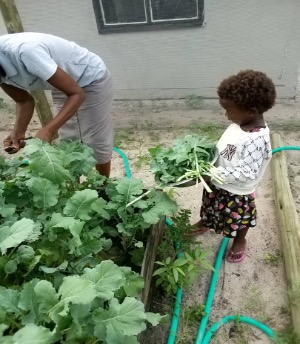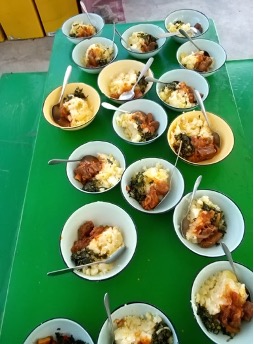
Khwai Village School Teaching Garden Project District Grant Details.
Khwai Village is a settlement with a population of 400 people located on the banks of the Khwai River in Northeast Botswana near the border with Nambia, Zambia, and Zimbabwe. The village has a pre-school/elementary school and a secondary school.
The school is sited in a large lot of which a small portion is made up of the classroom building and an adjacent playground with a few swings and slides. The remaining portion of the lot is not currently utilized and remains undeveloped.
The teacher explained that for various reasons the village doesn’t grow any crops or vegetables and mused that it would be a dream to install a working garden in which they might teach the children and their parents how to raise nutritional food. There is no current effort to raise crops in the village and as a result there is no gardening expertise, and all vegetables are brought in by truck and sold at the village store. The selection offered is limited and sometimes unavailable.
Why no gardens in the village, I asked? Reasons include lack of knowledge, experience, as well as wild animals that might plunder the crops. Lack of a reliable source of water for irrigation was also cited. Upon my return to the States, I inquired to the Village administration if they might be interested in pursuing a grant to enable a teaching garden to be installed at the Khwai elementary school. In asking I also inquired as to how we might manage the challenges that had stopped the Villagers in the past, namely available water/irrigation and the threat of wild animals. The Village leadership stipulated that they would ensure sustainable security around the school (they have that now) to keep wild animals out of the garden. Further, they said that the lack of knowledge would be obviated through a program wherein the parents would join with the students in gaining knowledge of how to plan, grow and maintain a garden by being taught best practices.
The village leaders are concerned about the lack of nutrition and lack of healthy choices for the community and feel that this program will have a positive impact on the health and well-being of Khwai village. The plot behind the village elementary school is quite sufficient to serve the community and further to serve as an inspiration for other such gardens to spring up, for example, at the secondary school.



 Khwai Village School Teaching Garden Project District Grant Details.
Khwai Village School Teaching Garden Project District Grant Details..png)
















